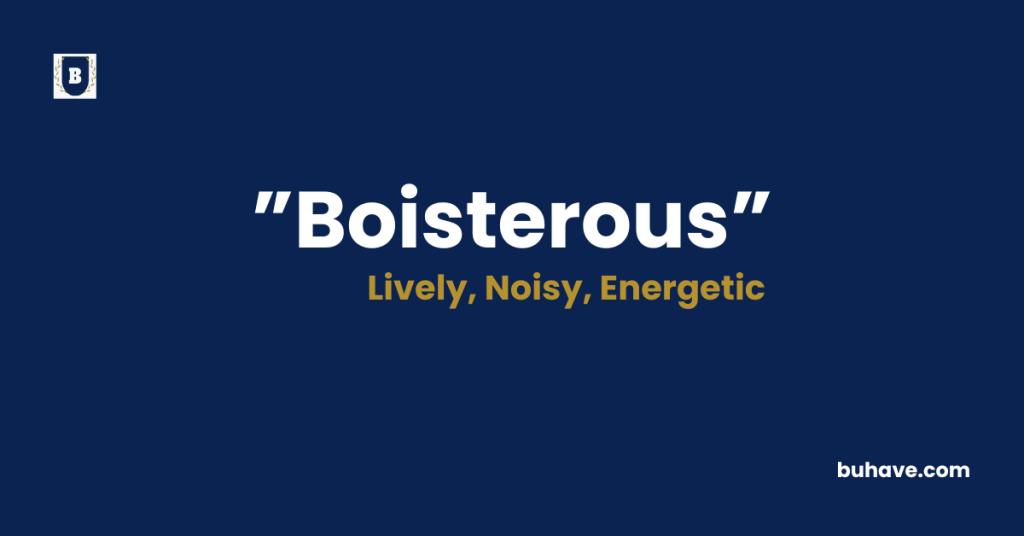The word Boisterous (adjective) describes someone or something that is noisy, energetic, and full of lively behavior, often in a slightly unruly or uncontrolled way. In this guide, you’ll learn the full definition, synonyms, antonyms, etymology, and real-life examples of how to use Boisterous correctly in sentences.
Boisterous Explained in Depth
A complete and detailed guide to the word Boisterous including meaning, definition, examples, etymology, synonyms, and antonyms.
Meanings of Boisterous
Boisterous means loud, lively, and full of energy, often in a way that lacks restraint or order. It is typically used to describe people, crowds, or activities that are fun but also a bit wild or disruptive.
Definition
Boisterous refers to a high level of noise and energy, typically associated with joyful, rowdy, or exuberant behavior. It can sometimes imply a lack of discipline or calmness in a social setting.
Etymology
The word boisterous comes from Middle English boistous, meaning “rough” or “coarse,” and originally referred to stormy weather or unruly behavior. Over time, it evolved to describe energetic and noisy behavior, often in a cheerful or spirited way.
Example Sentences
- The boisterous children ran through the park, laughing and shouting with joy.
- He joined a boisterous crowd cheering loudly for their team.
- Her boisterous personality made her the life of the party.
Boisterous Synonyms
- Noisy
- Exuberant
- Rambunctious
- Rowdy
- Lively
- Unruly
- High-spirited
- Exhilarating
- Clamorous
- Cheerful
Boisterous Antonyms
- Quiet
- Calm
- Subdued
- Peaceful
- Reserved
- Serene
- Tranquil
- Silent
- Muted
- Still
FAQs about Boisterous
Here are some Frequently Asked Questions (FAQs) about the word “Boisterous”
1. What does “boisterous” mean?
It means full of loud, energetic, and often unruly behavior.
2. Is “boisterous” always negative?
No, it can be positive when referring to joyful, high-spirited energy, but may be negative if disruptive.
3. Can “boisterous” describe animals or events?
Yes, animals like dogs or events like parties can also be described as boisterous if they are lively and noisy.
4. What’s the difference between “boisterous” and “noisy”?
“Boisterous” often implies energetic liveliness with noise, while “noisy” refers just to loud sound, not necessarily energy or activity.
5. Is “boisterous” a formal word?
It’s commonly used in both formal and informal contexts to describe lively, noisy behavior.

















